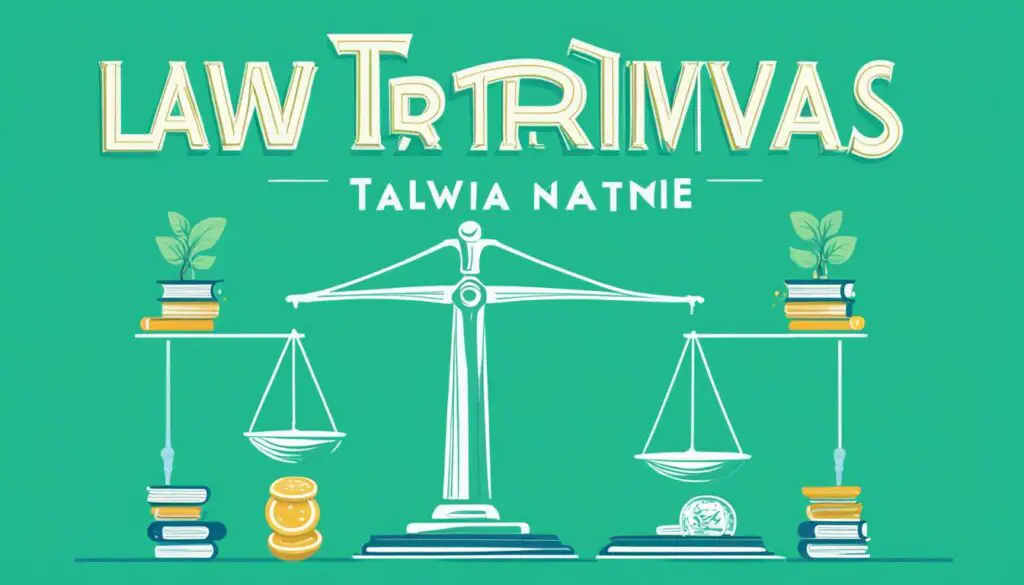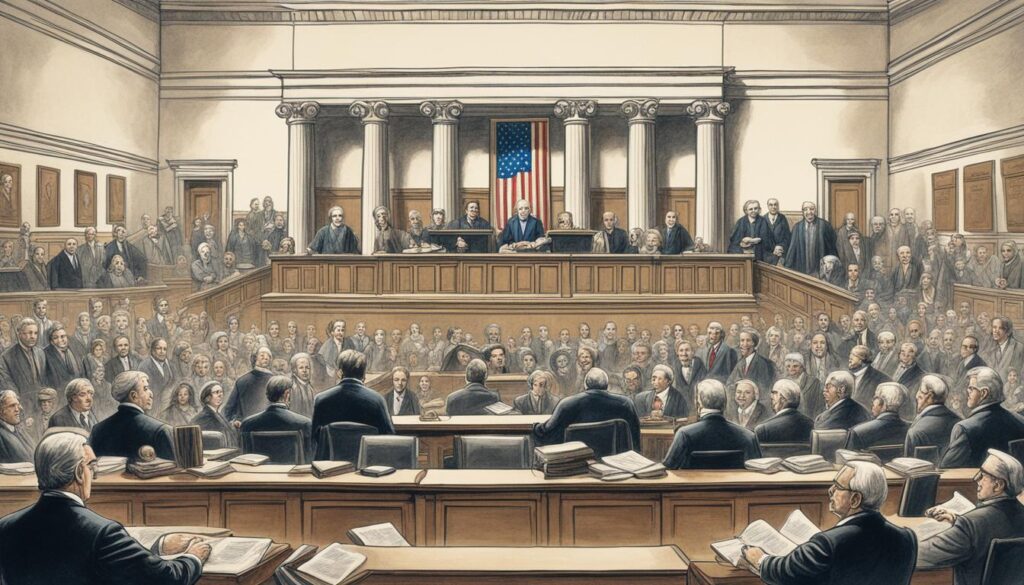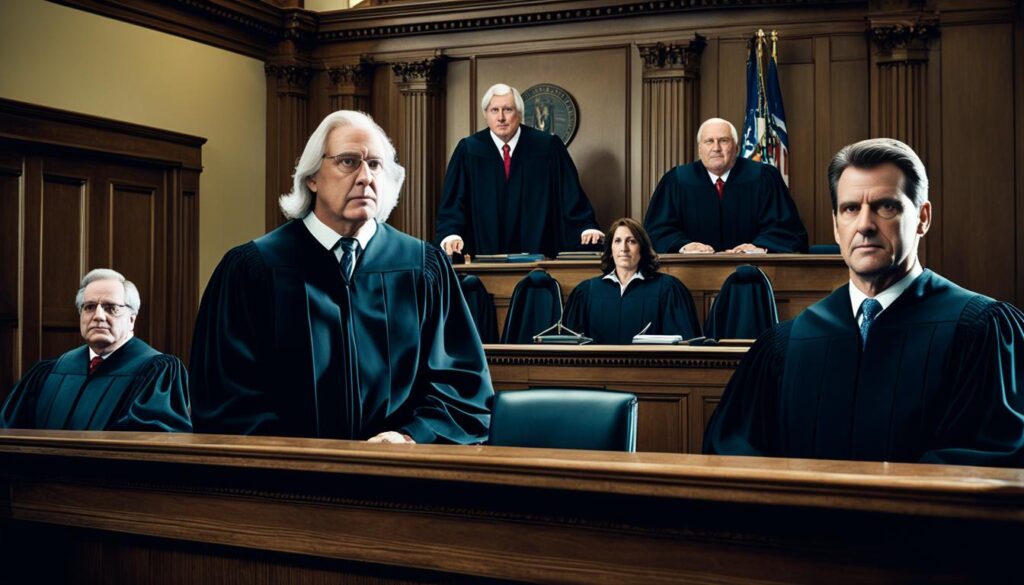
Test your legal smarts with engaging law trivia that challenges your understanding of statutes, legal history, and courtroom procedures. In this article, we will explore various law trivia questions and provide detailed explanations and answers to test and expand your legal knowledge. From famous cases to landmark legislation, this trivia will put your legal acumen to the test.
Key Takeaways:
- Law trivia is a fun and engaging way to test and expand your legal knowledge.
- Understanding statutes is crucial in comprehending how laws are created, enacted, and interpreted.
- Studying legal history and landmark cases helps in understanding the evolution of the legal system.
- Familiarizing yourself with courtroom procedures and protocols is essential for anyone interested in the legal field.
- Continuing to learn and expand your legal knowledge will better equip you to navigate the complexities of the legal system.
Understanding Statutes: A Closer Look at the Law
Dive into the world of statutes and gain a deeper understanding of how laws are created, enacted, and interpreted. The foundation of our legal system lies in the statutes, which are laws passed by legislatures at the federal, state, and local levels. These laws play a crucial role in governing our society and ensuring justice is served.
Statutes are written laws that address specific issues or concerns within our society. They cover a wide range of areas, including criminal law, civil law, business regulations, and more. Statutes provide the framework for legal rights and obligations, guiding the actions of individuals, businesses, and government entities.
Legislation is the process through which statutes are created. It involves drafting, debating, and passing laws by the legislative branch of government. Understanding the legislative process is essential for comprehending how statutes come into existence. It involves the introduction of bills, committee reviews, floor debates, and finally, the approval or veto by the executive branch.
Once enacted, statutes are organized into legal codes, which are comprehensive collections of laws related to specific areas of law. These codes group similar statutes together, making it easier to locate and understand the laws that govern a particular subject. Common examples of legal codes include the United States Code, state statutes, and municipal codes.
Interpreting statutes is a vital task undertaken by the courts. While statutes provide the guidelines, it is the role of the judiciary to apply and interpret the law in specific cases. Courts analyze the text, intent, and purpose of statutes to determine their meaning and effect. This interpretive process ensures that the law is consistently and fairly applied in different situations.
To test your understanding of statutes and their interpretation, here’s a trivia question:
What is the difference between strict construction and liberal construction when interpreting statutes?
Trivia Answer
Strict construction refers to a narrow and literal interpretation of statutes, focusing on the exact wording and meaning of the law. It aims to limit judicial discretion and ensure that the law is applied as intended by the legislative branch.
On the other hand, liberal construction takes a broader approach to statutory interpretation, considering the underlying purpose and policy behind the law. It allows judges more discretion to adapt the law to evolving societal needs and changing circumstances.
| Strict Construction | Liberal Construction |
|---|---|
| Literal interpretation | Broader interpretation |
| Focuses on exact wording | Considers underlying purpose |
| Limit judicial discretion | Allows judicial discretion |
Understanding statutes, their creation, structure, and interpretation, is essential for anyone interested in the legal field. It provides a solid foundation to navigate the complexities of the law and ensures that justice is upheld.
Now that we have explored the world of statutes, let’s move on to the next section, where we will uncover fascinating legal history through trivia on landmark cases and precedents.
Uncovering Legal History: Trivia on Landmark Cases and Precedents
Delve into the rich tapestry of legal history and explore landmark cases and precedents that have shaped our legal system. From famous Supreme Court decisions to lesser-known but influential cases, this section will test your knowledge of key legal milestones. Discover the stories behind these important cases, their impact on society, and their lasting legacy in shaping the law as we know it.
Legal history is a fascinating field that allows us to understand the development and evolution of our legal system. By examining landmark cases, we can gain insights into the principles, values, and ideas that underpin the laws that govern our society.
One of the most significant contributors to legal history is the Supreme Court. As the highest court in the United States, the Supreme Court has the power to interpret the Constitution and shape the course of the nation’s legal landscape. Famous Supreme Court decisions such as Brown v. Board of Education, Roe v. Wade, and Miranda v. Arizona have not only transformed the lives of individuals involved but also set important precedents on civil rights, reproductive rights, and criminal justice.
“The Constitution… is a living document, which means that it evolves with society and adapts to changing times. Landmark cases and precedents play a crucial role in defining the boundaries of the law and ensuring its continued relevance.”
In addition to Supreme Court cases, there are numerous landmark cases that have shaped the legal landscape in various areas of law. For example, the case of Plessy v. Ferguson established the “separate but equal” doctrine, while Marbury v. Madison established the power of judicial review. These cases and others like them have left an indelible mark on our legal system and continue to influence legal decisions today.
By exploring legal history and familiarizing ourselves with landmark cases and precedents, we can gain a deeper understanding of the principles that guide our legal system and the impact of judicial decisions on society. Whether you are a law student, legal professional, or simply interested in the law, this trivia section will challenge your knowledge and provide insights into the fascinating world of legal history.
Famous Landmark Cases and Precedents
| Case | Key Issue | Impact |
|---|---|---|
| Brown v. Board of Education | Racial segregation in public schools | Overturned the “separate but equal” doctrine, leading to desegregation in schools and setting the stage for the civil rights movement. |
| Roe v. Wade | Abortion rights | Established a woman’s constitutional right to have an abortion and shaped the ongoing debate on reproductive rights. |
| Miranda v. Arizona | Protection against self-incrimination during police interrogations | Established the Miranda warning, ensuring that individuals are aware of their rights when taken into police custody. |
| Plessy v. Ferguson | Racial segregation in public facilities | Established the “separate but equal” doctrine, allowing for racial segregation in public spaces until it was overturned by Brown v. Board of Education. |
| Marbury v. Madison | Judicial review | Established the Supreme Court’s power of judicial review, allowing it to declare legislation unconstitutional. |
Navigating the Courtroom: Trivia on Procedures and Protocols
Step into the courtroom and test your knowledge of courtroom procedures and protocols. From understanding the roles of key players in the courtroom to knowing the rules of evidence and the proper conduct during legal proceedings, this section will challenge your familiarity with the intricacies of the courtroom. Explore trivia questions related to courtroom etiquette, trial procedures, and the rules that govern the administration of justice.
“Objection, Your Honor!” – A familiar phrase in the courtroom that signifies an objection raised by one of the attorneys. But do you know the specific rules of court that govern these objections? Explore trivia related to objections and learn about the different objections that can be raised during a trial.
As the legal proceedings unfold, it’s essential to understand how evidence is presented and admitted in court. From witness testimonies to physical or documentary evidence, the rules of evidence are crucial in determining the outcome of a case. Test your knowledge of these rules and learn about various types of evidence and their admissibility.
Additionally, courtroom decorum and etiquette play a significant role in maintaining the integrity and professionalism of the legal system. Explore trivia questions that will challenge your understanding of proper courtroom behavior and the expectations of attorneys, judges, and witnesses during legal proceedings.
Navigating the courtroom requires a thorough understanding of the rules, procedures, and protocols that guide legal proceedings. Challenge yourself with trivia questions related to courtroom procedures and protocols and enhance your knowledge of the intricate workings of the courtroom.
Conclusion
Congratulations! You have completed the law trivia journey and tested your legal knowledge. Throughout this article, we have explored different aspects of the law, including statutes, legal history, and courtroom procedures. By challenging yourself with law trivia, you have expanded your understanding of the legal system and its intricacies.
Keep honing your legal smarts and continue to learn more about the fascinating world of law. Remember, the more you know, the better-equipped you will be to navigate the complexities of the legal system.
FAQ
What types of legal knowledge will the law trivia cover?
The law trivia will cover a range of legal knowledge, including statutes, legal history, and courtroom procedures.
How will the law trivia challenge my understanding of statutes?
The law trivia will test your understanding of how laws are created, enacted, and interpreted, giving you a deeper insight into the process of drafting and passing legislation.
What can I expect to learn about legal history through the trivia?
The law trivia will delve into landmark cases and precedents that have shaped our legal system, offering insights into famous Supreme Court decisions and influential but lesser-known cases.
Will the law trivia help me familiarize myself with courtroom procedures and protocols?
Absolutely! The law trivia will challenge your knowledge of courtroom procedures, from understanding the roles of key players to knowing the rules of evidence and proper conduct during legal proceedings.
What should I do after completing the law trivia?
Congratulations on completing the law trivia journey! We encourage you to continue honing your legal smarts and exploring the fascinating world of law to deepen your understanding of the complexities of the legal system.
Source Links
- https://worldanimalfoundation.org/dogs/illegal-dog-breeds-in-the-world/
- https://developer.apple.com/news/










